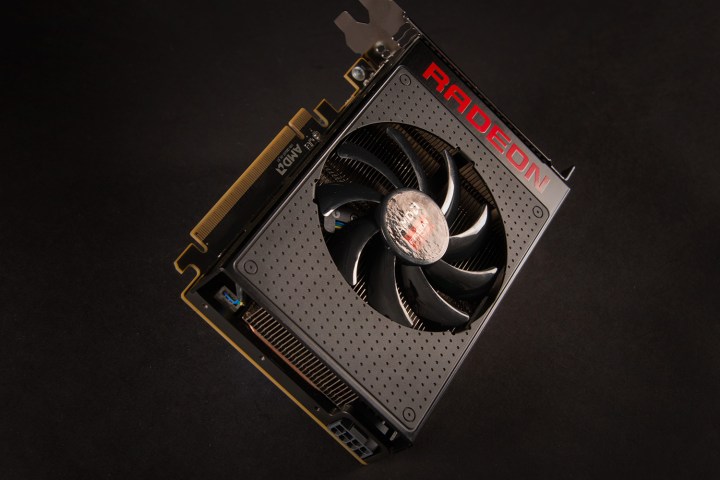
The R9 Nano launched to moderately favorable reviews, including one from our own Brad Bourque who called the GPU “a compact performer that strikes fear into larger cards, but its price can’t be ignored.” Now, thanks to the aforementioned markdown, that may no longer be a concern for the R9 Nano.
This is the first substantial price cut worth noting for a Fiji graphics card. In the past, we’ve seen the three previously released cards drop by around $50, but never by an amount of this significance.
Even more surprising is the fact that the R9 Nano was the most recently released graphics card in the Fiji lineup — and it’s being cut down by $150, putting it on a par with the full-size Fury R9. Although the R9 Fury Nano is a few percent slower than the vanilla R9 Fury, it’s also remarkably more conservative on power. This move could, in turn, lead to a disturbance in R9 Fury sales, if consumers are sensitive enough about power and space.
According to AMD, the Radeon R9 Nano is “the world’s fastest and most power efficient Mini ITX gaming card” and boasts support for both 4K and VR gaming in a small, 6-inch form factor. At its peak, the Radeon R9 supports 175 watts with a 30-percent performance advantage over Nvidia’s GTX 970 Mini ITX.
Though not explicitly stated by AMD, this move may be an attack on Nvidia’s GTX 980, which is now being bundled with Rise of the Tomb Raider for around the same $500 price point. You can find out more about the R9 Nano, complete with information on its claimed five-percent performance advantage over Nvidia’s option, on AMD’s website.


